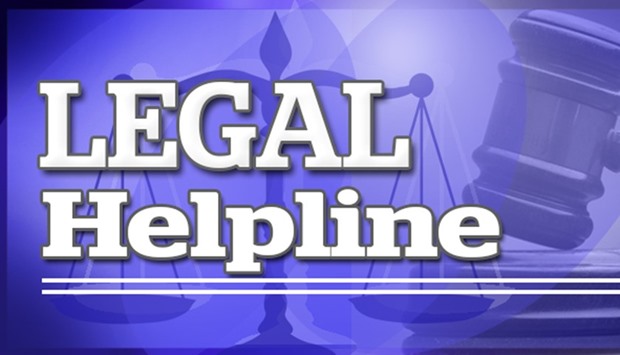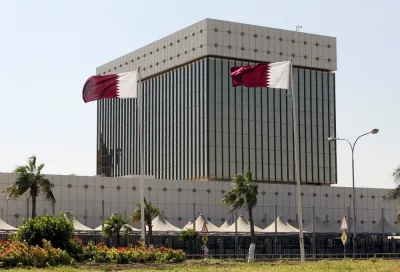QUESTION: I have been working with a hospital in Qatar for the past five years and have taken a loan from a bank. The management has now terminated me without any reason and I am searching for a new job. I am worried about the action that bank might initiate against me on my loan dues if they know about my termination. The bank holds a signed blank cheque. What action could the bank initiate? Can I stop the cheque since it is blank? What is the best way to solve this issue?
KD, Doha
ANSWER: As per procedures, the bank may file a criminal complaint by virtue of the cheque deposited with the bank, and the case can be referred to the court in order to claim the outstanding amount.
The court will issue its judgment even in the defaulter’s absence and the person will become a defaulter. Therefore, seek settlement with the bank to avoid complications.
In the matter of blank cheque and stop payment, by endorsing a blank cheque with signature and handing it over to the beneficiary, the drawer of the cheque has effectively granted the beneficiary unqualified authority to fill in the amount.
Confidentiality rule violation
Q: One of the supervisors in our company has been terminated from service under Article 61 of the Labour Law for violating the rules of confidentiality. He had revealed some information about the company to our competitors and we have the evidence for that. But our sponsor is forcing us to file a criminal complaint against him before repatriating the man. If we file a complaint against him, what will be the maximum punishment he will get for a crime like this?
DS, Doha
A: As per Article 332 of the penal laws, any person knowingly and illegally disclose a secret entrusted thereto in his official capacity, business, profession in conditions other than those prescribed by the law or uses it for his personal benefit or for the benefit of another person, without the consent of the concerned person with the secret, shall be liable to imprisonment for a term not exceeding two years in prison or a fine of no more QR10,000 or both.
Sick leave entitlement
Q: What is the law on sick leave for employees working with a private company? If an employee is sick during his probation period, is he entitled for sick leave benefits? Is any certification required for this entitlement? What’s the maximum period of probation?
JP, Doha
A: Sick leave is determined as per Article 82 of the Labour Law. Subject to confirmation from the doctor approved by the employer, the worker shall be entitled to paid sick leave after three months from the commencement of employment irrespective of his term of probation.
Accordingly, if the worker has completed more than three months in the continuous service falls ill, he shall be entitled to sick leave calculated @full pay for the first two weeks and @half pay for the next four weeks. Any subsequent periods are without pay. The maximum period of probation is six months.
Inspection of labour camps
Q: We have started a company in Doha and the initial business is going well. We have acquired a labour camp and our employees stay there. We understand that labour inspectors will inspect the camp soon and verify all relevant documents. What information should we keep in such a case?
TU, Doha
A: In order to ensure legal compliance, labour Inspectors shall have authority to enter the places of work during the working hours during the day or at night without prior notification for inspecting the registers, books, files or any other documents related to the workers.
They may inquire from the employer or his representative or any of the workers individually or in the presence of witnesses on any of the matters related to the implementation of Labour law and regulations.
They are also empowered to inspect the residence of the workers for assuring their compliance with the required health conditions.
Compensation for contractor
Q: Our project was suspended for two months by the main contractor and after that it was terminated. The main contractor is not willing to compensate us even after repeated requests. What is the legal provision on this? We spent much money for mobilisation.
VB, Doha
A: According to Article 707 of the Qatar Civil Laws, an employer may withdraw from a contract and terminate the performance of work at any time prior to its completion, provided he compensates the contractor for the expenses he has incurred, the works he has completed and what he would have been able to earn if he had completed the work. However, the court may reduce the compensation due to the contractor for loss of profit if the circumstances justify such reduction. Initiate case against the contractor for compensation.
- Please send your questions by e-mail to: [email protected] (Mobile:55813105)
LEGAL SYSTEM IN QATAR
Following the issue of the adjudication order, the creditors, even though their debts are guaranteed by collateral securities or established by conclusive judgments, shall deliver to the receiver the documents recording their debts accompanied by a statement of these debts and their securities if any, together with their amounts valued in the national currency at the exchange rate prevailing on the date of judgment. The receiver shall issue a receipt in respect of the statement and documents and shall acknowledgement to give the creditor official copy thereof.
The receiver shall return the originals documents to the creditors after closure of the bankruptcy, and shall be responsible for these documents for a period of one year from the date of closure of the bankruptcy. As per Article 706, the receiver shall verify the debts with the assistance of the supervisor and in the presence of the bankrupt or after he has been noti?ed to attend. If a debt is disputed by the receiver, the supervisor or the bankrupt, the receiver shall notify the creditor by registered letter with acknowledgement of receipt.
The creditor shall submit written or oral clarification within fifteen days of the date of receipt of the notice. Such period shall be doubled to one month in respect of creditors who are resident outside Qatar. Debts payable to the government arising from taxes and fees shall not be subject to the verification procedures. According to Article 707, after veri?cation of the debts, the receiver shall deposit within the court, a list showing the debts including supporting documents and the reasons for disputes thereto, and his decision as to the acceptance or rejection thereof. He shall also deposit a list of the names of the creditors who have specific securities on the bankrupt’s assets indicating the amount of their debts and kind of their securities.
Such deposit shall be made within a maximum of sixty days from the date of the judgment declaring bankruptcy. the period may be extended, if necessary, by decision of the adjudicator. The bankrupt and every creditor whose name mentioned in the list of debts may dispute the debts recorded in the statement within twenty days from date of publication of the list in the Of?cial Gazette. This period will be doubled if the creditor is residing abroad.
As per Article 710, after the expiry of the period, the adjudicator shall draw up a ?nal list of the undisputed debts and the receiver shall endorse the attached statement accompanying the documents of such debts to the effect that they have been accepted and the amount admitted of each debt on the statement. The adjudicator shall decide on the disputed debts within thirty days from the date of expiry of the period fixed for submission of objections. The Court Registry shall notify the parties concerned by registered letter at least one week prior to date of hearing.
According to Article 712, the decision issued by the adjudicator may be appealed within 20 days of issue. The court may, before determining the appeal, order provisional acceptance of the debt for the amount which it estimate. However, the debt may not be accepted provisionally if a criminal action has been filed in respect thereof. If the appeal relates to the securities for the debt, it shall be accepted provisionally as an ordinary debt. A creditor whose debt has not been accepted, either ?nally or provisionally, shall not participate in bankruptcy procedures.



